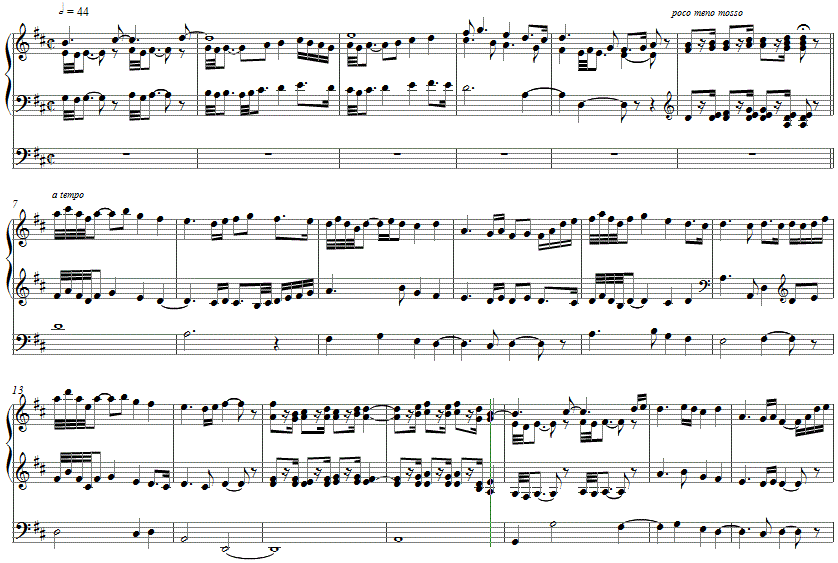Music and Texts of GARY BACHLUND
Vocal Music | Piano | Organ | Chamber Music | Orchestral | Articles and Commentary | Poems and Stories | Miscellany | FAQs
Fancy on a Catch of John Lenton - (2011)
for organ
The theme is drawn from The Catch Club or Merry Companions being a Choice Collection of the most Diverting Catches for three and Four voices Compos'd by the late Mr. Henry Purcell, Dr. Blow & c. The text for this round [ 1 ] reads: "Let us love and drink our liquor, / we shall spend our means the quicker, / here's to thee kind friend a Nicker." [ 2 ] Lenton was associated with the King's Musick, as were many of the others whose catches were collected as above. We come to see by there choice of texts, drinking, smoking, carousing, and even complaining about -- or alternatively praising -- their wives were a shared entertainment. I imagine these now-historic figures sharing such liquor and tunes as "merry companions."
The theme is very short, a ditty as much as anything, and as result there is added episodic material to extend what is essentially a two measure pendulum between tonic and dominant. Additionally as in other works I have written out ornamentation beyond the normal practices, turns on the interval of a third, as at measure 7 for example.
The entire work is here,
, an MP3 file [ circa 3' 00" ]
The score for Fancy on a Catch of John Lenton is available as a free PDF download, though any major commercial performance or recording of the work is prohibited without prior arrangement with the composer. Click on the graphic below for this organ score.
Fancy on a Catch of John Lenton
NOTES
[ 1 ] The simple round is as follows:
[ 2 ] From the mid-1600s, a "nicker" is a whinny of the neigh of a horse. One might therefore suggest that friends singing this catch while enjoying the contents of several bottles might even have added onomatopoeia of some sort as a final cadence or in between verses. Lenton published his The Gentleman's Diversion, a tutor for violin, in which he he addressed the whole notion of rules in music, commenting on, "'the humours of Masters being very Various, and what is approved by one would be condemned by another...."

